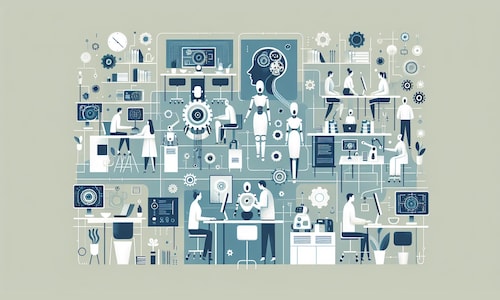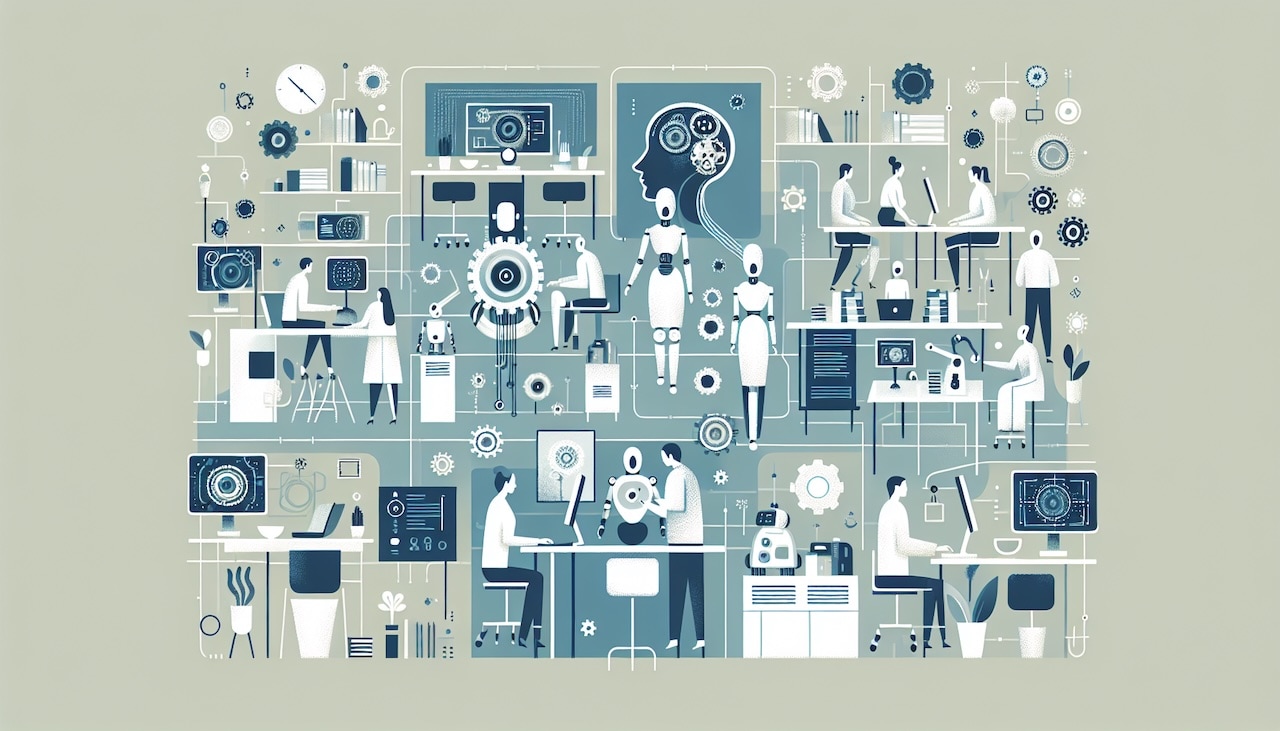

Clerical and Repetitive Jobs At Risk
Bery addressed concerns about AI replacing jobs, particularly in economies with a heavy reliance on the services sector. He said, “We have to ask what kinds of jobs would be at risk, and those are clerical jobs, repetitive jobs.” He added that while job displacement is a concern, it is the services sector in the rich — read developed — world that faces greater challenges due to AI.
“Frankly, the services sector in the rich world has more to worry about,” Bery explained. “If they have reacted badly to the elimination of manufacturing jobs, this now threatens a much larger swathe of employment, because an economy like the US, I think, is about 80% services. And if those can be exported or made more productive by using labour in India, that’s a more important theatre.”
Also read: AI a ‘huge tailwind’ for India’s progress to Viksit Bharat, says NITI Aayog vice chair
A Shift in Thinking From Jobs to Livelihoods
For India, Bery said it is of utmost importance to shift the focus from traditional jobs to the concept of evolving livelihoods. He explained that the pace of technological change, driven in part by AI, necessitates a more flexible and dynamic approach to employment.
“We are all going to have to shift our thinking from jobs in the kind of Japanese salaryman kind of way to evolving livelihoods—partly self-employed, but also entrepreneurial people kind of moving on,” he said.
This shift, according to Bery, will require India to embrace continuous learning and skilling to ensure that its workforce remains adaptable in the face of rapid technological advances.
Skilling for the Future
Bery said there is a critical need for skilling to prepare India’s workforce for the jobs of the future. He pointed to the success of community colleges in the United States, which allow individuals to upgrade their skills throughout their lives, as a model India could learn from.
“In the US, community colleges give you an opportunity to upgrade your skills throughout your life,” Bery said. “I think we need to start thinking about inevitable obsolescence. The pace of change in an AI world is going to be faster, and so we must prepare ourselves for it.”
Also read: India among the countries most concerned about robots taking jobs
He also stressed the need for training programmes to align with the demands of emerging technologies. “…don’t have our ITIs [train] people in internal combustion engines. They must learn how to service EVs, EV batteries, etc,” he said.
Entrepreneurship in the Age of AI
Bery pointed to Prime Minister Narendra Modi’s vision of fostering entrepreneurship and startups as a way to create new opportunities in a rapidly changing world. “The Prime Minister is visionary in that he doesn’t see the world of employment in the future as necessarily being what it has been in the past. That’s why he’s always stressing startups, personal entrepreneurship, etc,” Bery said.
Preparing for an AI-Driven Future
Bery’s remarks illustrate the importance of adaptability and innovation in preparing for the future of work. By focusing on evolving livelihoods, continuous learning, and entrepreneurship, India can turn the challenges of AI-driven disruption into opportunities for growth and development.
“The pace of change in an AI world is going to be faster,” Bery said. “We must prepare ourselves for it by rethinking how we approach employment, skilling, and livelihoods in the years to come.”
Also read: India among the countries most concerned about robots taking jobs



